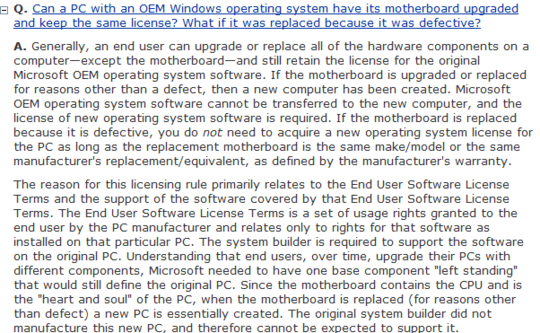No, it's not true as far as I know. The requirement to purchase an OEM copy of Windows is that it be purchased with some new hardware. Since you're buying a new motherboard, that definitely should qualify (if not, then just buy some RAM or a USB memory stick, which also qualifies according to the rules). Whoever sells you the OEM license will know these rules, and will be able to give you the proper advice on purchasing requirements.
If you have a failing part, it's totally unreasonable to say that you can't re-install your software after replacing that part. In this case, the part is a major one.
When you're on the phone with the Microsoft Activation Centre, just tell them the truth -- that you have a new motherboard. As long as you don't use the same license on another machine (including one that may be running the old motherboard), you'll be fine.
In my experience, I've rarely had to call the Microsoft Activation Centre to get things straightened out, and when I did it was only when multiple parts had to be changed at once (e.g., motherboard and hard drive, because the customer decided, as a matter of convenience, to upgrade to a larger hard disk while the failed motherboard was being replaced).

See also: FAQ about Windows licensing
– nhinkle – 2011-07-04T06:25:33.390